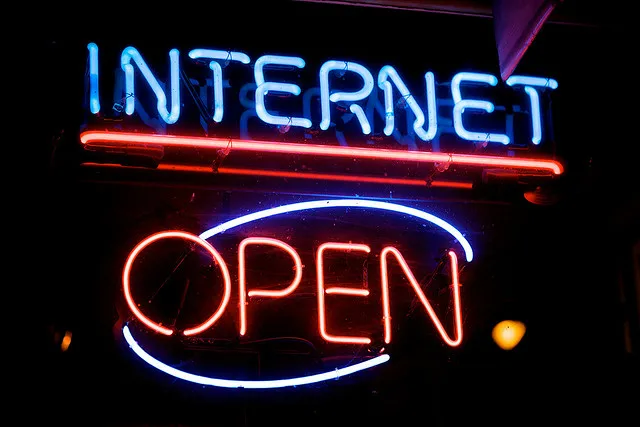Today, the FCC did exactly what a large portion of the public, as well as U.S. lawmakers, have been asking them not to do: They repealed the agency’s own 2015 Open Internet Order that put broadband internet under utility-style regulation and prevented internet service providers from prioritizing different content or blocking access. That’s bad, but it’s only one step that doesn’t mean all is lost. It just means that the fight moves elsewhere.
Really, anyone who’s been paying attention knew this was coming. It was hard enough to convince the FCC to enact the Open Internet Order in the first place, in order to guarantee that all internet traffic is treated equally and fairly by ISPs. Once the FCC came under Republican control, headed by deregulation-happy Trump appointee Ajit Pai, it was only a matter of time until this happened. Republicans in Congress have already launched several massively unpopular health care overhaul efforts and a massively unpopular tax overhaul effort, with that unpopularity factoring into the ultimate decisions of so few of them that the health care changes almost passed, and the tax plan still might.
Republicans aren’t big on public opinion right now, and Pai had already made it clear that he’s similarly impervious to it, whether or not a (very) few Congressional Republicans have been coming around. Pai has even gone so far as to refuse to turn over evidence about fraudulent comments, from the mandatory open comment period on the FCC’s plan, to New York Attorney General Eric Schneiderman, who says that millions of fake comments were made “including two million that stole the identities of real people, a crime under New York law.”
He just doesn’t care about anything other than killing these regulations to provide assistance to those who really need it: giant telecommunications corporations.
So if everyone knew he was going to do this, why all the fighting? Because today’s vote still isn’t the end, although preventing it would’ve been ideal. TechCruch has an excellent explainer on where to expect things to go next, which basically breaks down as this:
Nothing will happen right away because the FCC’s new rules will take time to go into effect and ISPs won’t react immediately. However, we can expect lawsuits to challenge some provisions of the new, misleadingly named “Restoring Internet Freedom Order,” especially in its rules barring individual states from enacting their own Net Neutrality protections now that the FCC has abandoned them. There’s also the matter of investigation into the false comments, but what we really need to depend on, in the end, is Congress.
That seems bleak with the Congress we have right now, but it’s not impossible, and the power wielded there already shifted a bit this week when the election of Doug Jones brought the total in the Senate to 49 Democrats and 51 Republicans (not counting Mike Pence’s tie-breaking Republican vote). Net neutrality can and should be bipartisan—it mostly is among voters—but Democratic lawmakers are certainly more open to it at the moment.
That’s why we have to continue being loud about this issue, even if the FCC won’t listen. Congress will ignore it if we let them, but they could step in at any time and render this a non-issue by writing net neutrality into law. Pai himself has said, in justification for his actions, that the FCC isn’t the right body to have authority over the internet. With him in charge, he’s made that a self-fulfilling prophecy, but Congress could make that all go away by using their own authority on the matter and making it harder to reverse on a whim.
So, if you enjoy using an internet where your ISP’s business model and profit margin don’t have more control over what internet content works for you than your own personal preferences, keep talking about net neutrality to make sure that lawmakers can’t just ignore the issue.
(via The Verge, image: Jeremy Brooks on Flickr)
Want more stories like this? Become a subscriber and support the site!
—The Mary Sue has a strict comment policy that forbids, but is not limited to, personal insults toward anyone, hate speech, and trolling.—









Published: Dec 14, 2017 04:20 pm